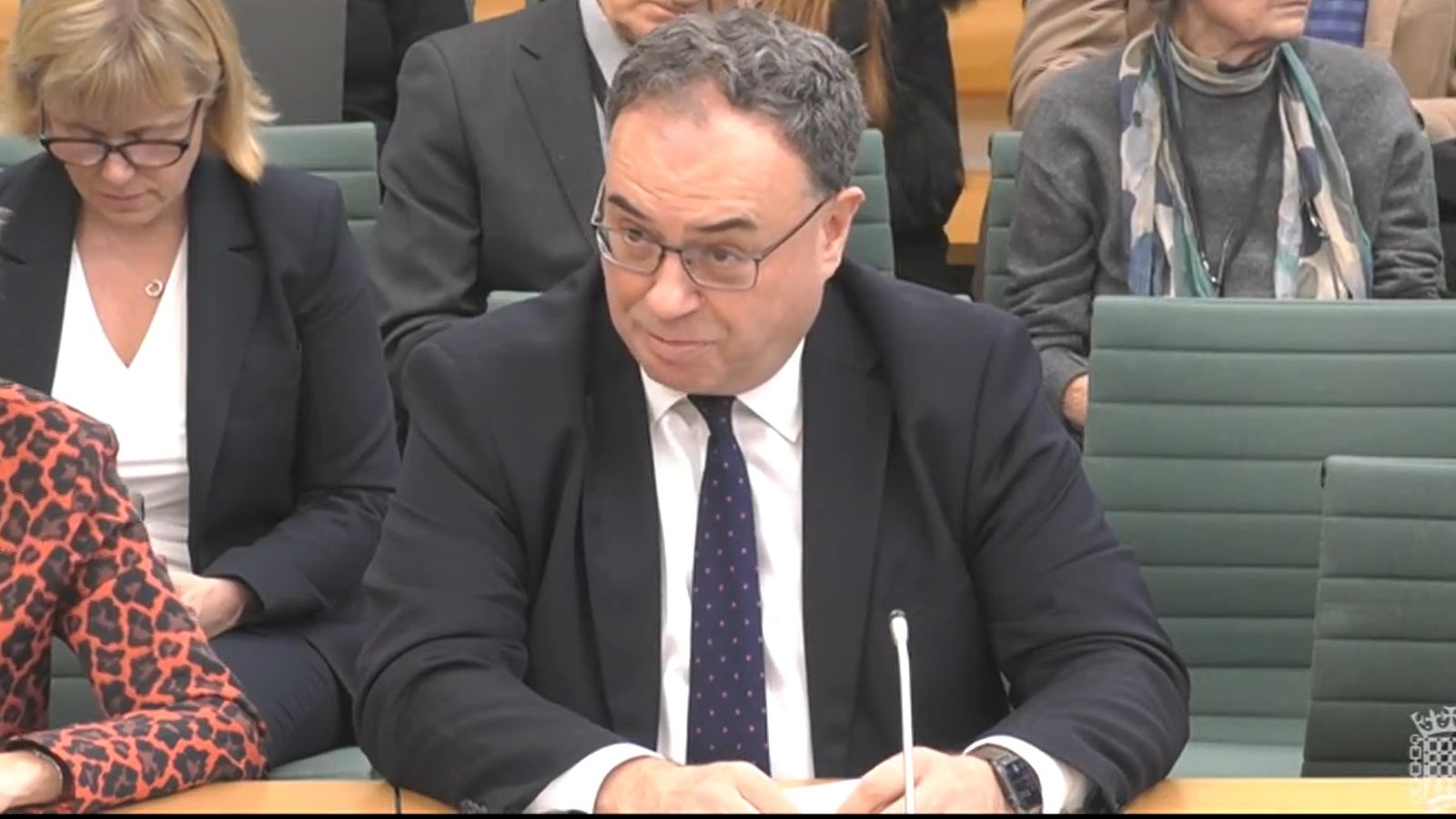Markets are underestimating how persistent inflation will be in the next year and interest rates are likely to remain high as a result, the governor of the Bank of England has said.
Andrew Bailey told MPs that Bank rate is likely to be kept at an elevated level for a “significant” period in order to bring down inflation further following last week’s fall.
Mr Bailey told the Treasury select committee that despite inflation having passed the government’s target of halving this year, domestic “second-round” impacts mean the “last mile will be the hardest” as the Bank focuses on its mandate to return inflation to the 2% target.
“I really think the market is putting too much weight on the current data releases and the fact that we’ve seen inflation come down quite rapidly, that’s good news obviously,” he said.
“We are concerned about the potential persistence of inflation as we go through the remainder of the journey down to 2% and I think the market is underestimating that.”
The governor said last week’s abrupt fall from 6.8% was the result of elevated energy prices falling out of the annual inflation calculation, but there were no more large “base effects” left to drop out of the figures.
“It [the fall] was obviously good news – it was largely news that we expected,” he said.
Shell Energy fined £1.4m by Ofcom for breaching consumer protection rules
Barclays in ten-day race to repay Telegraph newspaper loans
How the chaos at ChatGPT maker OpenAI has unfolded – why it matters and what might happen next
“As we set out in the Monetary Policy Report, we expect a little bit more of what I would call this unwinding of last year’s external shocks to come through. We’re not going to get another one like last week though; that’s the last of those base effects to come through.”
Speaking 24 hours ahead of the chancellor’s autumn statement, Mr Bailey refused to be drawn on whether Prime Minister Rishi Sunak had played any role in cutting inflation from January’s peak of more than 11%, or whether tax rises of any kind could be considered inflationary.
Please use Chrome browser for a more accessible video player
The Bank’s most recent forecast is that inflation will fall to 3% next year and return to the 2% target in 2025.
Mr Bailey said food price inflation should fall further by the end of the first quarter of next year, but that consumers were still feeling the impact of the Ukraine war in weekly grocery shopping.
He said anxiety about the cost and availability of key inputs like fertiliser meant farmers had “locked in higher prices” by agreeing higher prices on long-term supply deals that were yet to fall away.
Please use Chrome browser for a more accessible video player
Deputy governor Dave Ramsden told MPs constraints on the supply side of the economy were effectively a “speed limit” on growth despite quite resilient demand.
Wage inflation, currently above 7%, was a key factor particularly in the services sector, which accounts for close to half of inflation, and where pay accounts for 60% of costs.
Read more from Sky News:
If you can work, you should, says minister – as benefits crackdown looms
Doubt cast on Sunak debt pledge as October borrowing second highest on record
Retailers hit back as study finds just 2% of Black Friday offers were at their best price
He also pointed to the relative lack of business investment in the UK economy since the Brexit referendum in the summer of 2016.
Be the first to get Breaking News
Install the Sky News app for free
“Business investment is 6% higher than in the second quarter of 2016, before the Brexit referendum, that’s an average of less than 1% a year. In that time US business investment has gone up 25%.”
In spiky exchanges with MP’s Mr Bailey also denied the central bank had been “behind the curve” in addressing inflation.
“We were the first major central bank to raise rates, so that is not true,” he said.







